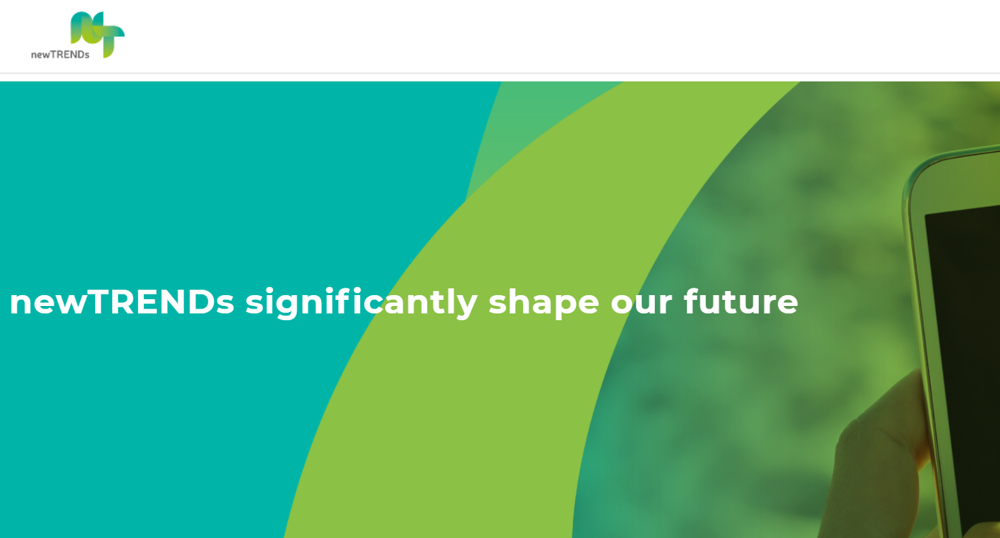The goal of the newTRENDs project, run within the Horizon 2020 Framework, is to recognize and model the influence of new societal trends on energy demand, and hence to develop scenarios of their future development. Almost 12 months of cross-sectoral modelling work within the project has just been summarized at the first stakeholder workshop, which gathered institutional representatives on both: national and EU level. Key findings will serve for further project development.
newTRENDs purpose
“Understanding new societal trends and their potential impact on future energy demand allows us to proactively design a desirable future instead of reactively trying to fix what has gotten out of control.” – says Dr. Heike Brugger, coordinator of the newTRENDs project at Fraunhoffer ISI.
What makes a change?
The researchers involved in the newTRENDs project aim to answer the question: how will new trends influence future energy demand? The general goal of newTRENDs is to understand which societal trends are likely to alter energy demand, how high and how disruptive this influence might be and how trends enforce or counteract one another. To this end, they will improve existing analytical models; they will take into account the principles of Energy Efficiency First (EE1) and use knowledge and techniques for uncertainty management, inherent in this type of forecasting attempt.
The researchers will use the qualitative (foresight) methods in combination with quantitative cross-sectoral modelling. This approach is not widely applied so far and as such is a great strength of the newTRENDs project. However, the quantitative models that will be enhanced in this project are quite frequently used for the long-term forecasting within the EU. To make the analysis as accurate as possible, researchers will also use modern sources of data on social trends and energy consumption.
Trends that may have a significant impact on energy demand in the future
What is the project dealing with? New societal trends arise from so called megatrends, like for instance: digitalization, that may have potential impact on future energy demand. Within the first year of the project three main areas of interest have been defined as follows:
- digitization of the economy and private life (including new and smarter ways for private households to consume, produce and manage their own energy),
- creation of a circular low-carbon industry,
- sharing economy, particularly in transport and the tertiary sector.
New social trends may affect not only the amount of energy consumed, but also its preferred form by consumers, or the time period of the greatest burden on the energy grid. The larger the sections of society that succumb to these changes, the greater the evolution will take place throughout the energy.
Together means better: 1st Stakeholder Workshop
In order to achieve the assumed goals, the newTRENDs project involves stakeholders and decision-makers at national and EU levels, various representatives of civil society (NGOs, think tanks, business associations) and experts from science, research and development institutions as well as different DG’s of the European Commission. The first stakeholder workshop of the newTRENDS project took place in October 2021 and invited stakeholders to learn more about new societal trends which shape future energy demand and to provide their own thoughts about pressing policy questions in this context. The results of the workshop will be included in the further course of the project to improve the existing models and to answer relevant research questions.
How to minimize climate change and keep Europe’s economic growth?
“Not a single country so far not only in Europe, but in the world, has achieved a high human development within the planetary boundaries. We are either sacrificing environment, or sacrificing economic growth and prosperity of societies. Policies we are trying to analyse with our energy demand models within the newTRENDs project are looking at the intersection between social and environmental concerns, and avoid compromising both. The project will contribute to improving EU policies and try to look more deeply into regulations having in mind the Green Deal ambition: to make Europe the first climate neutral continent by 2050” – says Maksymilian Kochański from Research Innovation Centre Pro-Akademia.
During the course of the NewTRENDs project, a series of studies will be published, covering the process of selecting and mapping new social trends, macroeconomic analyses, as well as analysis of specific sectors of the economy, such as transport, construction and industry. The project research outputs will also cover policy aspects, such as the tools needed by decision-makers at various levels of economic management or the analysis of changes in energy demand depending on changes in consumer behavior. Results of these discussions will be released in the form of policy briefs, available to the public. More information on the newTRENDs project can be found at: newtrends2020.eu
About the project
The newTRENDs project is part of the Horizon 2020 program: the largest research and innovation framework program in the history of the EU, with a budget of 80 billion euro. It is a part of the long-term EU climate strategy, the main goal of which is to achieve carbon neutrality by 2050. The project is coordinated by Fraunhofer ISI (Germany), in partnership with Wise-Europa (Poland), E3-Modelling (Greece), Technische Universität Wien (Austria), TEP Energy (Switzerland), Politecnico di Milano (Italy), Research and Innovation Centre Pro-Akademia (Poland) and e-think Energy Research (Austria). The NewTRENDs project is to be completed by the end of August 2023.
Media enquiries:
newTRENDs Project Press Office
✉️ media_newtrends@wise-europa.eu
📞 Monika Zagorska, +48 22 513 14 18
Other language versions of the project press release are available below:
Pl:



Comments are closed.